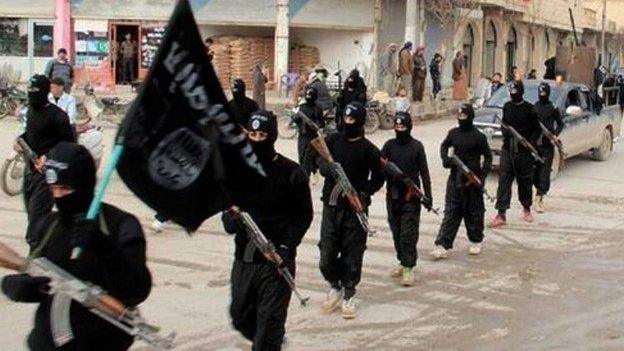Woolwich murder: Lee Rigby's death 'not preventable'
- Published
Lee Rigby's uncle Ray Dutton: "In my heart of hearts I can't believe that... Lee's murder could have been stopped"
The murder of Fusilier Lee Rigby could not have been prevented despite his killers appearing in seven intelligence investigations, a report has found.
It found errors in security operations but said they were not "significant enough to have made a difference".
The parliamentary inquiry, external highlighted one online exchange - understood to have been on Facebook - the agencies did not have access to that MPs said might have enabled them to stop the attack.
The soldier was killed in May 2013.
Michael Adebolajo and Michael Adebowale drove into the 25-year-old before hacking him to death, near Woolwich Barracks, in London.
Prime Minister David Cameron said the Intelligence and Security Committee report had raised "significant areas of concern".
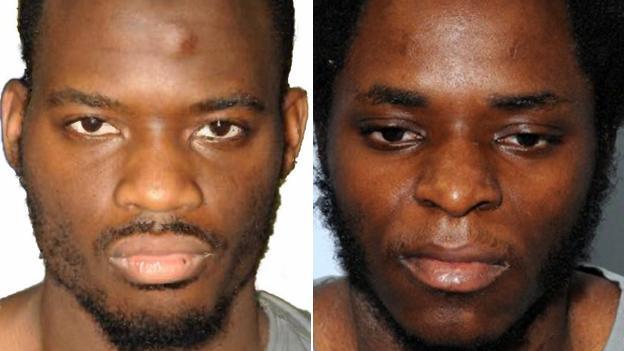
Michael Adebolajo, left, and Michael Adebowale
The committee spent 18 months examining the actions of MI5, MI6 and GCHQ (Government Communications Headquarters) regarding the two men and produced the most detailed report it has ever published.
Adebolajo and Adebowale appeared in seven different agency investigations - for the most part as low-level subjects of interest - and the report identifies a number of serious delays and potential missed opportunities.
They include:
A four-month delay in opening an investigation into Adebolajo following his return from Kenya in 2010. He had been arrested in the African country after apparently preparing to fight with Somali militant group al-Shabab
An eight-month delay before Adebowale was first actively investigated in 2012
An application for intrusive surveillance on Adebowale in 2013 took "nearly twice as long as it should have"
Had the original target been met "these further intrusive techniques would have been in place during the week before and on the day of the attack"
The report found the two murderers were in contact 39 times between 11 April and 22 May 2013 - including seven attempted calls and 16 text messages on the day before the attack.
But "none of these text messages revealed any indication of attack planning or indeed anything of significance".
The report's conclusion was "given what the agencies knew at the time, they were not in a position to prevent the murder of Fusilier Rigby".
'Safe haven'
However, the committee flagged up an online exchange between Adebowale and an overseas extremist, which only came to light after the attack.
In the exchange from December 2012, Adebowale expresses his intent to murder a soldier in a "graphic and emotive" manner.
The report does not name the company that hosted the exchange but the BBC understands it was Facebook.
Committee chairman Sir Malcolm Rifkind said the online exchange was "highly significant".
"Had MI5 had access to this exchange at the time, Adebowale would have become a top priority," he said.
"There is then a significant possibility that MI5 would have been able to prevent the attack."
A Facebook spokesman said: "Like everyone else, we were horrified by the vicious murder of Fusilier Lee Rigby.
"We don't comment on individual cases but Facebook's policies are clear, we do not allow terrorist content on the site and take steps to prevent people from using our service for these purposes."

Analysis

By Gordon Corera, BBC security correspondent
This remarkably detailed report finds fault with all three British intelligence agencies.
Each made mistakes. Investigations were not prioritised, reports not passed on.
And yet the conclusion argues that even with these in mind the attack could not have been stopped.
The committee denies that it was generous in its conclusions.
The signs are though that this report may be used as part of the government's push to gain more access to communications since it argues the strongest evidence came from a US internet company that did not pass on a crucial online exchange.

The report did not lay the blame with the agencies but the "company on whose system the exchange took place".
"This company does not regard themselves as under any obligation to ensure that they identify such threats, or to report them to the authorities," he said.
"We find this unacceptable: however unintentionally, they are providing a safe haven for terrorists. "
Sir Malcolm said even if the agencies had sought access - under a warrant - before the attack, the company might not have responded.
"None of the major US companies we approached proactively monitor and review suspicious content on their systems, largely relying on users to notify them of offensive or suspicious content.
"We also found that none of them regard themselves as compelled to comply with UK warrants obtained under the Regulation of Investigatory Powers Act 2000.
"This is of very serious concern: the capability of the agencies to access the communications of their targets is essential to their ability to detect and prevent terrorist threats in the UK."
'Murder and mayhem'
The committee's findings were published the day after a warning by Home Secretary Theresa May about the level of terrorist threat the country faces, and a day before new counter-terrorism powers are published.
BBC security correspondent Frank Gardner said within hours of the report being published, it was being used to give the government support for the bill it wants to introduce to force internet companies to keep data available to police and intelligence agencies.
"Adebowale had already been blocked from other internet service providers because his content was too extremist but this particular one did not report him," he said.
Human rights group Liberty said the ISC had "shamelessly" spun the facts in order to shift the blame on to communications companies.
David Cameron: "Few countries... would publish this degree of detail about their security services"
BBC assistant political editor Norman Smith said it had turned very swiftly from controversy over the role of the security agencies into a fully-blown political furore over the role of this committee and the government.
"The committee is already facing accusations of glossing over failings of the security services," he said.
"The Labour chairman of the home affairs committee wants to interview the security chiefs before his committee because he doesn't feel the intelligence committee has done a good enough job."
He added that a senior Conservative MP on the intelligence committee had expressed concern that the report's criticisms of the internet companies had been leaked in advance.
The prime minister had asked the committee to carry out the investigation following Fusilier Rigby's death.
Responding to the report in the Commons, he announced £130m in funding to improve the agencies' capability to combat "self-starting" terrorists - also known as lone wolf attackers.
He also said internet firms had a "social responsibility" to prevent their networks being used to "plot murder and mayhem".
Adebolajo was sentenced in February to a whole-life term and Adebowale was jailed for a minimum of 45 years for the killing. They were 29 and 22 years old respectively when sentenced.
- Published25 November 2014
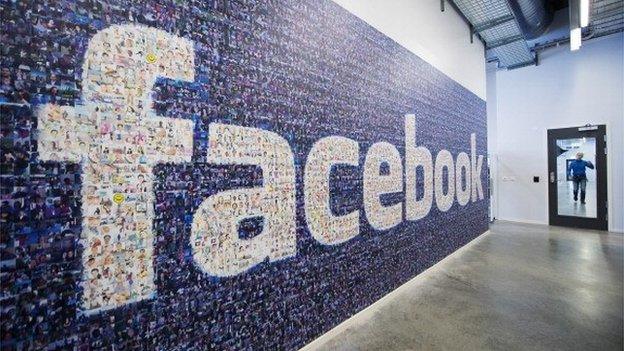
- Published25 November 2014
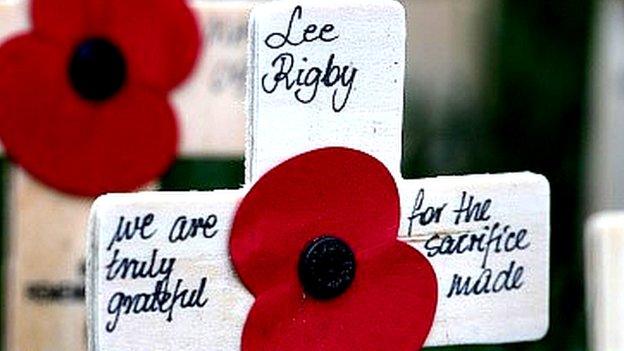
- Published26 February 2014
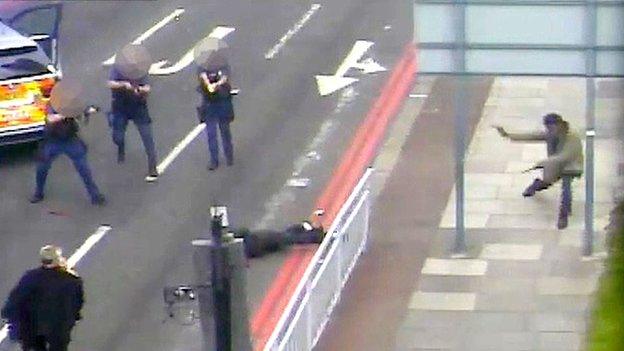
- Published26 February 2014
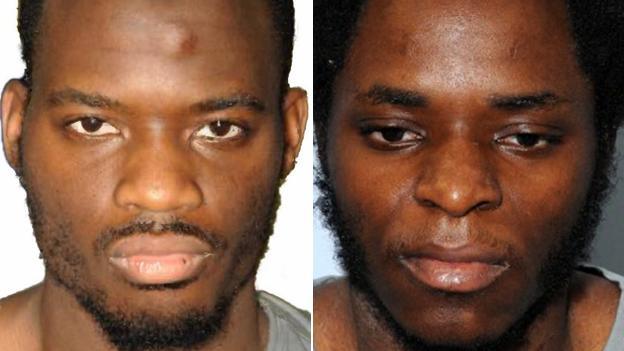
- Published4 November 2014
